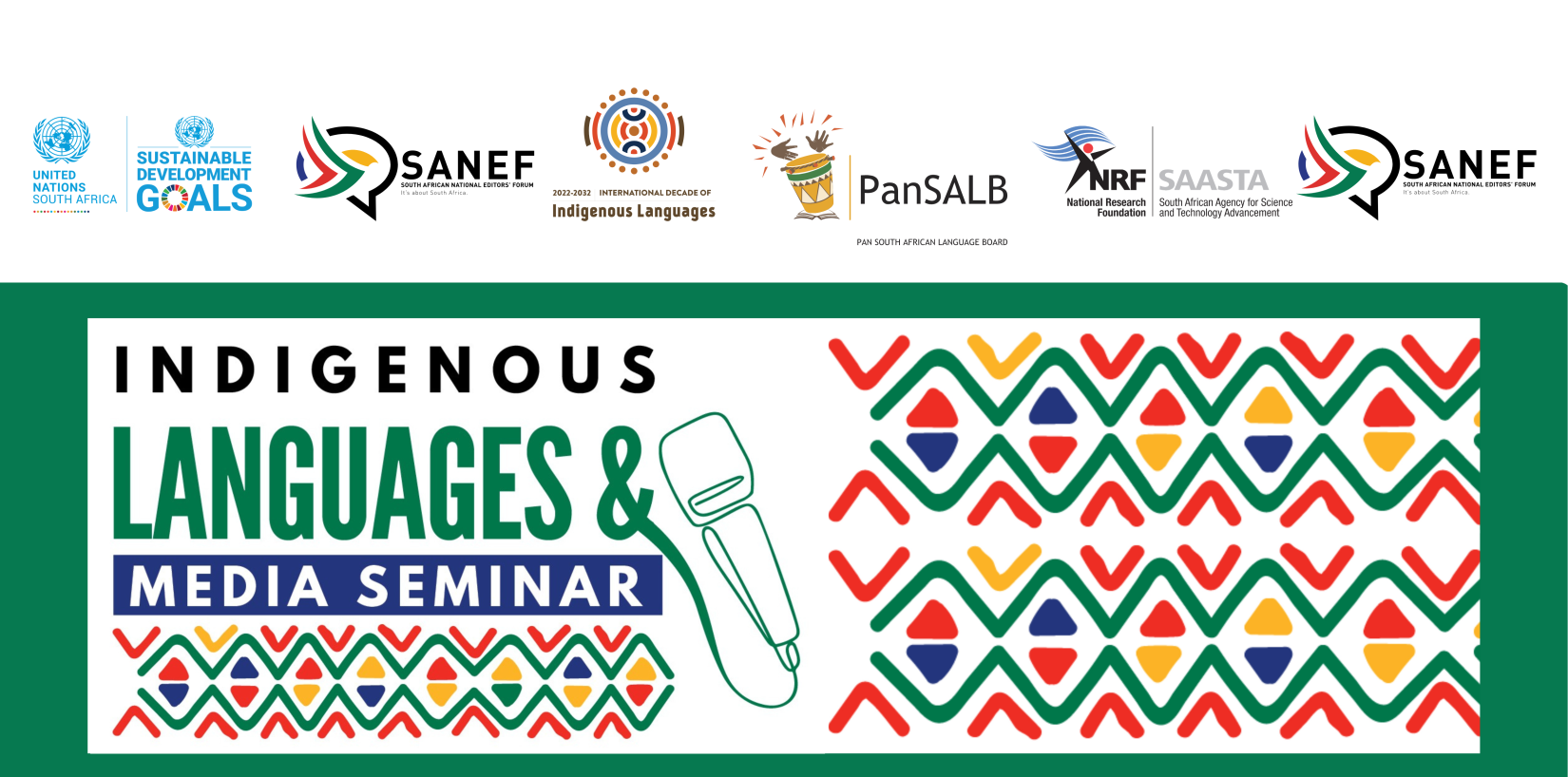SANEF announces seminar on Indigenous Languages and the Media
06 August 2024
“As we mark 30 years of democracy and the vital role of linguistic diversity in South Africa’s media landscape, we also celebrate the International Decade of Indigenous Languages 2022–2032 and the International Day of the World’s Indigenous Peoples. These milestones underscore the United Nations’ priority of multilingualism and our commitment to safeguarding and promoting indigenous languages. Ensuring that every language is respected and celebrated is essential to preserving cultural heritage and advancing inclusive development,” said Nelson Muffuh, UN resident Coordinator in South Africa.

The South African National Editors’ Forum (SANEF), in collaboration with the Pan South African Language Board (PanSALB) and the United Nations in South Africa, is pleased to announce an upcoming seminar on the media’s role in the development and preservation of indigenous languages. The seminar will take place on 07 August 2024, at the Radisson Blu Gautrain in Sandton, Johannesburg.
The seminar will focus on the media’s role in the development and preservation of indigenous languages, the impact of artificial intelligence on media, and strategies for the indigenous languages media sector to attract digital advertising and thrive.
Building on the success of last year’s inaugural indigenous languages seminar, this event will delve into the progress made over the past year and identify the next steps in promoting indigenous languages in the media. Key developments, such as the translation of the Press Council of SA (PCSA)’s Press Code by the United Nations South Africa into several indigenous languages, will be highlighted and discussed.
This seminar is aimed at journalists, academics, analysts, and professionals in the business media sector. There will be a strong emphasis on community media practitioners, particularly those from small and independent outlets. Participants from digital, print, and broadcast media, as well as stakeholders with an interest in language development, are encouraged to attend.
The seminar will be interactive, guided by experienced moderators.
Reggy Moalusi, SANEF executive director says the seminar aims to foster meaningful conversations and debates, leading to actionable points that will drive the promotion and utilisation of indigenous languages in both formal and informal media settings. The media, including social media platforms, play a critical role in this effort, especially among young people, he says.
“As we mark 30 years of democracy and the vital role of linguistic diversity in South Africa’s media landscape, we also celebrate the International Decade of Indigenous Languages 2022–2032 and the International Day of the World’s Indigenous Peoples. These milestones underscore the United Nations’ priority of multilingualism and our commitment to safeguarding and promoting indigenous languages. Ensuring that every language is respected and celebrated is essential to preserving cultural heritage and advancing inclusive development,” said Nelson Muffuh, UN resident Coordinator in South Africa.
The CEO of PanSALB, Mr. Lance Schultz, emphasised the importance of revitalising indigenous languages. He highlighted the critical role that the media has played in the past in preserving these languages and encouraged journalists to continue the legacy of the media leading efforts in language preservation through their use in print and broadcast media.
SANEF, PanSALB, and United Nations South Africa are committed to fostering a robust discussion on the media’s role in preserving and promoting indigenous languages, and we look forward to welcoming participants to this significant event.
About SANEF:
The South African National Editors’ Forum is a non-profit organization that promotes quality journalism and media freedom in South Africa. SANEF engages in advocacy, training, and support for journalists and media practitioners.
About PanSALB:
The Pan South African Language Board is a statutory body established to promote and create conditions for the development and use of all official languages of South Africa.
About UN South Africa:
The United Nations in South Africa operates through a network of 21 specialised agencies, funds, and programmes that work together to support the country’s development and humanitarian efforts. The UN in South Africa focuses on a range of issues, including sustainable development, health, education, human rights, and peace and security. UN works closely with the South African government, civil society, and other partners to address the country’s challenges and support its development goals. In South Africa, the Resident Coordinator is the head of the United Nations in South Africa and a representative of the UN Secretary-General.
For more information, please contact:
- Reggy Moalusi – SANEF Executive Director – 0716823695
- Hopewell Radebe – Projects Manager – 0835821734




